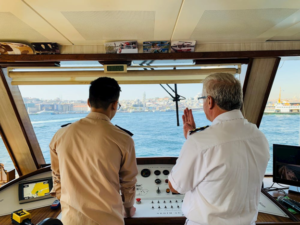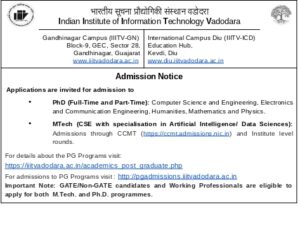Blue horizons that stretch into forever, ever-changing scenery drifting past docked ships, and tight-knit crews that feel like family – does life working onboard a merchant ship appeal to your sense of adventure and wanderlust? The maritime industry employs over a million seafarers across vessel types ranging from tankers and bulk carriers to passenger cruise liners. Read on for an in-depth overview of vital seafaring roles, key skills required, training prerequisites, and actionable tips to land your dream job aboard transoceanic vessels on voyages that span the globe.
Understanding Seafarer Jobs
The sheer size and complexity of today’s commercial oceangoing vessels demand multiple departments working seamlessly together towards shared safety and operational priorities. A variety of seafarer jobs fall under three main branches aligned with core vessel functions—the deck department, the engine department, and ancillary service positions like ship’s cooks and stewards.
The Deck Department
Consider the deck crew the executive operators charting the ship’s navigation course, safely transporting multimillion-dollar cargo to destination ports around the world. Vital roles include:
Captain/Master:
The captain commands final authority over every facet from crew oversight to cargo transport schedules. Their strategic decisions and crisis management impact corporate sustainability and human lives. Only the most seasoned professionals ascend to this respected peak after decades of honing mastery.
Chief Officer/First Mate:
Ranked second in command, Chief Officers undertake critical administrative duties like inspecting safety equipment, arranging cargo storage, documenting incidents, plus stepping in for the Captain during predetermined watches. This position grooms exceptional candidates for eventual Captain promotion.
Second Officer/Second Mate:
Working closely with the Chief Officer to coordinate key operations like lowering lifeboats and supervising emergency drills while also correcting navigation courses and relaying engine readings to the bridge crew.
Third Officer/Third Mate:
As onboard safety and security supervisors, Third Officers train crew response protocols, operate deck equipment like cranes and winches, report navigational hazards, and log weather and sea data while standing watch.
Bosun:
Leading the team of deck ratings, Bosuns direct routine maintenance projects like chipping, scraping, and painting exposed exteriors and inspecting mooring lines and anchoring gear while assessing ongoing repairs needed. Their experience mentors junior roles.
Able Seaman (AB):
These certified maritime veterans perform physically demanding external maintenance, fulfill lookout shifts noting hazards that could impact passage, assist in docking/lifting cargo, and operate survival crafts – leveraging career experience to enrich trainees.
Ordinary Seaman (OS):
Aspiring deckhands gain fundamental experience under their seasoned colleagues’ wings- securing cargo, handling lines and wires during docking, and maintaining exterior surfaces while familiarizing themselves with essential equipment operation, safety protocols, and navigation techniques required for career advancement.
The Engine Department
Responsible for the smooth, efficient performance of high-stakes mechanical, electrical, and propulsion systems powering modern vessels, the engine room team faces sweltering temperatures and high-stress troubleshooting critical operational issues. Key staff include:
Chief Engineer:
As head authority overseeing onboard machinery, Chief Engineers verify equipment functioning optimally, investigate discrepancies pinpointed through engine performance analytics, authorize part replacements, and confirm compliance with environmental and safety regulations alongside maintenance best practices.
Second Engineer/First Assistant Engineer:
Directly accountable to the Chief Engineer, they monitor engine room operations during assigned watch duty, supervise repairs firsthand, compile supply requisitions, and mentor the junior engineering team on maintenance intricacies and compliance documentation.
Third Engineer/Second Assistant Engineer:
Studying schematics to understand integrated system dependencies, Third Engineers perform preventative maintenance like tuning, testing, and inspecting equipment, investigating malfunctions, and overseeing repairs while directing subordinates during grueling maintenance projects.
Fourth Engineer/Third Assistant Engineer:
The Fourth Engineer leads ratings in cleaning machines, repairing minor leaks, changing filters and burners while maintaining spare parts inventories, and monitoring performance indicators for abnormalities. This working foreman role builds operational mastery from the ground up.
Electrical Officer/ Electro-Technical Officer (ETO):
Specializing in the electrical networks empowering propulsion and auxiliary systems, ETOs troubleshoot circuitry issues, upgrade lighting networks, and maintain generators and alarm systems while advising on integrating sustainable solutions like solar and wind power as available.
Fitter/Motorman:
Physically repairing, testing, and prepping critical components like motors and pumps for installation, Fitters interpret technical drawings to construct replacement parts using machining tools as needed under the Second Engineer’s guidance.
Oiler/Wiper:
Entry-level Motormen maintains engines and equipment within tolerance thresholds by detecting leaks, changing oil and filters, greasing moving parts, and performing comprehensive cleaning to facilitate visual inspections looking for deterioration and needed fixes.
Other Seafarer Jobs
Supplemental teams fulfill hospitality and communication duties across vessels. Examples include:
Steward/Messman:
Ship’s Stewards sustain crew morale by planning nutritious menus, procuring provisions, preparing meals, and baking celebratory fare for milestones while keeping mess halls fully sanitized per stringent regulations.
Cook:
Reporting to the Head Steward, Cooks handle meal preparation tasks like chopping, frying, broiling, baking, and grilling favoring recipes adaptable to available ingredients stored onboard, occasionally substitutions when certain provisions run low mid-voyage.
Radio Officer:
In charge of all ship communication systems, Radio Officers establish satellite and radio links enabling vital data transmissions, monitor alarm networks, uphold IT security protocols, and assist navigation planning by providing weather updates received along intended routes.
Required Skills and Qualifications
Advancing through shipboard roles relies on developing niche capabilities plus foundational personal strengths — from technical mastery to unwavering professionalism when facing maritime hazards outside individual control.
Technical Skills:
Extensive applied knowledge across domains like navigation, engineering, and network operations empowers crews to execute multifaceted responsibilities while at sea independently for months. Compliance documentation skills also prove critical.
Personal Qualities:
Seafaring also demands unwavering poise under pressure, resilience through extended isolation, cultural adaptability onboard international vessels, plus intuitive leadership excelling both in independent initiative and coaching peers.
Formal Qualifications:
Requisite credentials span technology proficiencies and policy awareness. Deck officers and engineers earn merchant mariner credentials via rigorous written assessments and sea-time experience thresholds. Radio operators, medics, and tradecraft specialists similarly gain accredited licenses denoting expertise.
Finding Seafarer Jobs
Breaking into maritime careers relies on proactive networking, social media savvy, and leveraging niche recruiters. Top tactics include:
Online job boards:
Major crewing agencies like Spinnaker Global post available assignments across vessel types and popular routes on their websites searchable by rank and department. Sign up for email notifications when new openings match your credentials.
Maritime recruitment agencies:
Well-connected agencies like Martide Marine Contractors maintain relationships with fleet owners in need of qualified officers, engineers, cooks, and deckhands to fill vacant billets on short notice across oceans. Follow niche agencies on social media for first notice when billets open.
Networking:
Attending local maritime trade group mixers builds connections to recruiters and hiring managers you can leverage for informal career advice and insider opportunities. Virtual forums also connect global maritime communities.
Conclusion
The maritime industry keeps the engines of globalization humming thanks to skilled crews willing to live nomadic lives centered around caring for storied vessels as a second home. Deckhands, stewards, engineers, and mates alike leverage formal training and resolute persistence to ascend within their department’s hierarchy after years of proving competency handed increasing authority.








